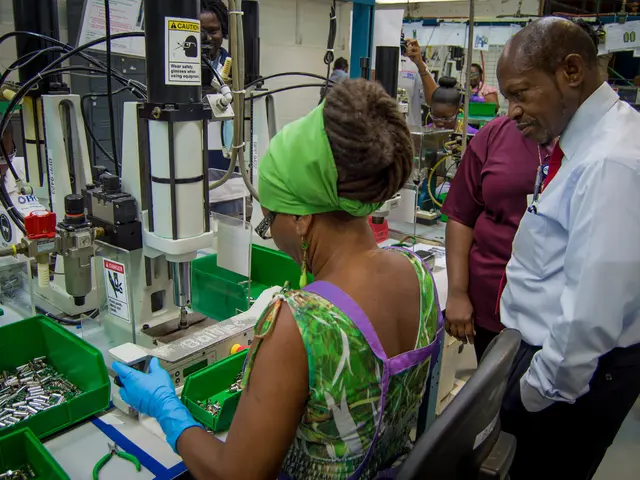Casinos Hold Steady on Smoking Policies Amidst Health Concerns
Investors Decline Implementation of Smoking Ban at Bally's Casino
In a recent vote, Bally's shareholders decided against a proposal to investigate the impact of a smoking ban in their casinos, opting to maintain the status quo. Some shareholders voiced concerns over potential profit loss if smoking were to be banned, stating, "Changing the smoking policy could negatively impact our profits."
The Money Talks
The primary reason behind the rejection is the fear that a smoking ban could negatively impact profits. As many believe, smoking is an integral part of the casino experience for some customers, and banning it might lead to a loss in revenue. Reports show that casinos in areas with smoking bans have faced financial struggles. "We have seen other casinos struggle with revenue after implementing smoking bans," explained another shareholder.
A Healthy Debate
Public health advocates voice dissent, emphasizing the importance of employee health and customer well-being. They argue that a smoke-free environment would attract a larger non-smoking customer base and create a healthier work environment for staff. The negative effects of secondhand smoke on health cannot be overlooked, and they believe the issue needs more attention. "The health of our employees should come first," stated a health advocate.
A Breeze of Change?
Although the proposal was rejected, the conversation surrounding smoking in casinos is likely to continue. More people are becoming aware of the health implications of secondhand smoke, making it a topic worth revisiting in future discussions. For now, Bally's will persist in its current smoking policies. "We must strike a balance between customer satisfaction and health concerns," noted a shareholder.
Venturing into the Backdrop:
Several casino companies like Wynn Resorts, Boyd Gaming, Caesars Entertainment, and Penn Entertainment have been under pressure from anti-smoking advocacy groups to examine the economic benefits of a smoke-free environment. Factors like health risks, maintenance costs, and the potential impact on visitor numbers due to secondhand smoke exposure are at the heart of the movement [1][2].
Potential Implications:
- Revenue Concerns: Some parties worry that a smoking ban could lead to reduced income and job losses, as observed in Atlantic City [3].
- Economic Benefits: Data suggests that prohibiting smoking no longer significantly influences gaming revenue. An in-depth analysis could reveal potential cost savings and increased appeal to health-conscious visitors [2].
- Customer Satisfaction: More than half of potential visitors express a preference for smoke-free casinos, which could boost overall satisfaction and attract new clientele [4].
- Attractiveness: A small number of patrons opt for casinos based on smoking availability, suggesting some clientele might be deterred by a smoking ban [5].
- Public Health: Allowing smoking indoors exposes both staff and patrons to secondhand smoke, posing serious health risks. Implementing smoking bans could significantly improve public health outcomes by reducing these exposures [3].
- Advocacy Groups' Support: Organizations like the American Nonsmokers’ Rights Foundation and Trinity Health have been advocating for smoke-free policies, emphasizing the business and health benefits of such measures [1][2].
- Despite the rejection of the proposal by Bally's shareholders, the conversation regarding smoking policies in casinos is expected to persist, as more people become informed about the health implications of secondhand smoke.
- Public health advocates maintain that implementing a smoking ban would offer several benefits, including attracting a larger non-smoking customer base, creating a healthier work environment, and reducing health risks associated with secondhand smoke exposure.
- On the other hand, some shareholders argue that a smoking ban could negatively impact profits, as casinos in areas with smoking bans have faced financial struggles and changing the smoking policy might lead to a loss in revenue.
- In the broader casino industry, companies like Wynn Resorts, Boyd Gaming, Caesars Entertainment, and Penn Entertainment are under pressure from anti-smoking advocacy groups to examine the potential economic benefits of a smoke-free environment, considering factors like health risks, maintenance costs, and visitor numbers.








